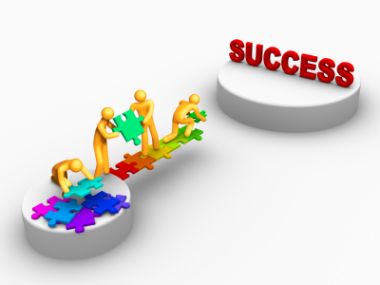Because ski racing isn’t a team sport in the usual sense of the word, little is attention is given to the influence that individual athletes can have on a ski team, whether healthy or toxic. Nor do we often think about how a team in ski racing can have a significant effect on the performances of its individual members. Yet, team culture has an immense impact on both individual athletes and team functioning and performance.
Have you ever been on a “downer” team? I’m talking about one that is permeated with negativity, unhealthy competition, and conflict? It sure doesn’t feel good and it can definitely interfere with your skiing your best. It’s difficult for racers to do much about it; all they can do is accept it or find another team. But, as a coach, you can have a big impact on how your team functions.
 In addition to my psychology work with ski racers and athletes in general, I consult extensively in the corporate world where I help executives and companies to maximize individual and team performance. One of the most important areas I focus on in this work involves helping senior management to create an organizational culture that is positive and high performing. While working with the coaching staffs of several junior programs this fall, it occurred to me that developing a healthy team culture is as important in the ski racing world as it is in the corporate world. So, in applying these concepts to race programs, let’s start with an understanding of what a team culture is and why it is of essential value.
In addition to my psychology work with ski racers and athletes in general, I consult extensively in the corporate world where I help executives and companies to maximize individual and team performance. One of the most important areas I focus on in this work involves helping senior management to create an organizational culture that is positive and high performing. While working with the coaching staffs of several junior programs this fall, it occurred to me that developing a healthy team culture is as important in the ski racing world as it is in the corporate world. So, in applying these concepts to race programs, let’s start with an understanding of what a team culture is and why it is of essential value.
A culture is the expression of a team’s values, attitudes, and beliefs about sports and competition. It determines whether, for example, the team’s focus is on fun, mastery, or winning or whether it promotes individual accomplishment or team success. The culture is grounded in an identified sense of mission and shared goals, for instance, the goal of placing the most number of team members on the Junior Olympic team for their region.
Teams in ski racing are complicated a bit by the fact that ski racing isn’t really a team sport (except perhaps at the college level where our sport is crammed into a team format through scoring and team victories). Unlike true team sports such as basketball or football, the success of one racer isn’t dependent on how his or her teammates ski (at least not directly). Yet, I’m sure that you would agree that the culture of a team, whether healthy or unhealthy, has a real impact on its individual athletes. For example, a team that is in constant conflict or has a negative atmosphere will bring team members, athletes and coaches alike, down and this unpleasant atmosphere will also hurt individual racers’ results. Conversely, a team culture built on positive energy, support, and fun will lift everyone up, feel comfortable and supportive, and the results will show it.
The culture creates norms of acceptable behavior on a team, either explicitly or implicitly conveying to members what is allowed and what is not. These norms can dictate to team members how to behave, communicate, cooperate, and deal with conflict. When clear norms are established, everyone on a team is more likely to abide by them.
Very importantly, the culture creates the atmosphere that permeates every aspect of a team’s experience. Is the atmosphere relaxed or intense? Light-hearted or competitive? Supportive or competitive?
All of these qualities of a culture have real implications for how the team functions, how its members get along, and, crucially, how the athletes on the team ski and the results they get. When a team has a defined culture that is understood by all of its members, they feel an implicit pressure (in the good sense) to support that culture.
Components of Team Culture
VALUES reflect what is most important to us, determine our attitudes, goals, emotions, and guide our behavior, actions, and efforts individually and as a team, on and off the field. Examples of healthy team values include:
- Total effort
- Quality
- Positive attitude
- Process
- Support
- Fun
ATTITUDES are how we think and feel about each other, our goals, our efforts, and how we want to compete. Examples of healthy team attitudes include:
- Ownership
- Challenge
- Long-term
- Risk
- Discomfort
- Positive reaction to failure
GOALS express what we want to achieve as a team (outcome) and what we need to do to accomplish those goals (process). Examples of healthy team goals include:
- Consistently high results and rankings (outcome).
- Be purposeful, focused, and intense every time we train (process).
- Be maximally prepared before every race/comp (process).
EMOTIONS are the feelings that most permeate a team, either positively or negatively, in terms of relationships, performances, and results. Examples of healthy team emotions include:
- Passion
- Inspiration
- Excitement
- Joy
- Fulfillment
- Pride
ACTIONS are where we put our values, attitudes, goals, and emotions to the test. Talk is cheap and easy; actions speak louder and are harder than words! Examples of healthy team actions include:
- Fullest effort from start to finish of training.
- Total preparation for races/comps.
- Respectful and supportive of all team members.
- Good sports win or lose.
- Making decisions that are in my/our best interests.
How a Team Culture Develops
Coaches can allow the culture of their team develop in one of two ways. First, it can emerge naturally as an expression of its individual members. The benefits to this “organic” approach is that team members feel a sense of ownership for the culture because they created it. But there is a risk that the creation of the team be unfairly shaped by one or a few team members who may be particularly assertive or controlling, leaving other members of the team feeling marginalized and powerless. And a real danger can arise when the team culture is hijacked by a small subset of the team who are more interested in exerting their own power over the team, however unhealthy it might be. The result can be a truly toxic culture that serves neither the best interests of the team as a whole or its individual members.
The second approach, and the one that I recommend, is for coaches to take an active (though not dominating) role in the creation of a team culture. Through your leadership and open discussions with team members, your team can identify the values, attitudes, and beliefs that you and your athletes want to act as the foundation of the team culture. You can also discuss what all of you feel is important in terms of the atmosphere you want to create, the expectations the team has about their behavior, and the way in which team members communicate. This collaborative approach to team culture will ensure that members feel a sense of ownership for the culture and, as a result, are more likely to live by its dictates.
BUILDING A POSITIVE TEAM CULTURE requires initial buy-in, conscious awareness, frequent reminders, consistent practice, and committed action. Ways to build a healthy team culture include:
- Collaborate with your athletes to establish Team Culture (values, attitudes, goals, emotions, actions).
- Use Culture checklist before training sessions as reminders.
- Have periodic ‘roses & thorns” to encourage openness.
- Have interdependent & fun activities.
- Before races/comps, pick one or two aspects of Team Culture that you want the team to express in it.
Training Group Cultures
In addition to the over-all culture that a coaching staff fosters to best serve the goals of the entire team and the needs of all of its athletes, training groups within the larger team can also create their own cultures. These training-group cultures better reflect the individual personalities of their coach and athletes and the unique goals that they are pursuing. These cultures also allow athletes who may be unable to take a leadership role in the team as a whole to exert influence within their training group.
Questions to Ask
Coaches, I encourage you to sit down with the rest of the coaching staff and your athletes to discuss the kind of culture your team wants to have. You should ask the following questions (and any others that you think relevant). Training groups can ask the same questions:
- What values do we want to act as the foundation for our team culture?
- What attitudes and beliefs about ski racing, competition, and team do you want to hold?
- What are the goals that the team wants to pursue?
- What is acceptable and unacceptable behavior within your team?
- How do the athletes and coaches want to treat each other?
- What kind of atmosphere do we want on your team?
When you take the time to proactively build a healthy team culture that your racers buy into, you set your team up for a fun and successful race season.
Want to proactively build a positive team culture with your racers? Take a look at my online mental training courses.






